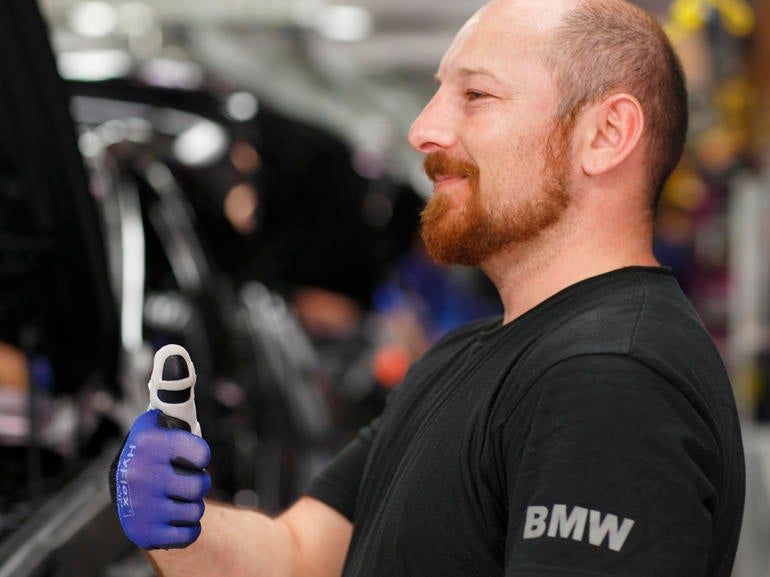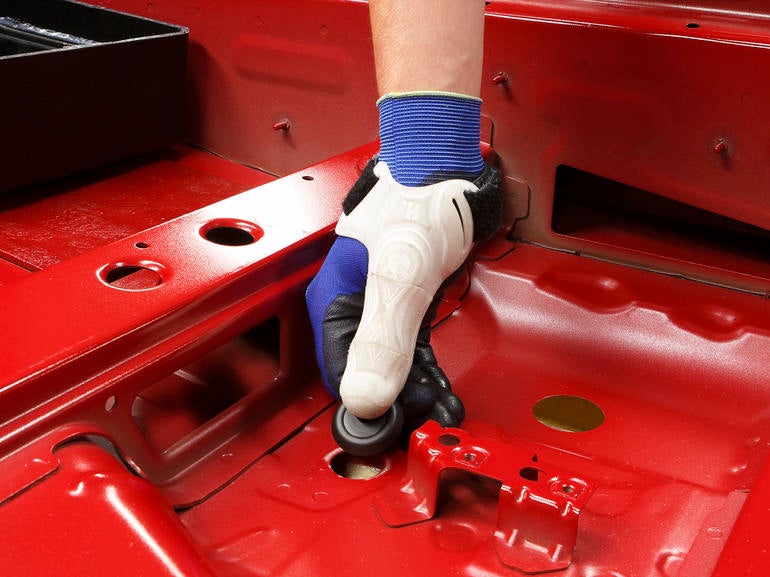BMW gives workers 3D-printed 'super thumbs'
The thumb-guard is made from a hybrid material that stiffens when straightened, allowing workers to assemble cars with less strain

Your support helps us to tell the story
From reproductive rights to climate change to Big Tech, The Independent is on the ground when the story is developing. Whether it's investigating the financials of Elon Musk's pro-Trump PAC or producing our latest documentary, 'The A Word', which shines a light on the American women fighting for reproductive rights, we know how important it is to parse out the facts from the messaging.
At such a critical moment in US history, we need reporters on the ground. Your donation allows us to keep sending journalists to speak to both sides of the story.
The Independent is trusted by Americans across the entire political spectrum. And unlike many other quality news outlets, we choose not to lock Americans out of our reporting and analysis with paywalls. We believe quality journalism should be available to everyone, paid for by those who can afford it.
Your support makes all the difference.Workers in a BMW factory in Germany have been given 3D-printed “super thumbs” in order to relive the strain on their hands while assembling cars.
Designed by the Technical University of Munich’s Department of Ergonomics, the thumb guards have been created specially to fit each worker’s thumb, acting as a split to reinforce the joint when workers push in rubber holding plugs.
Workers’ hands were scanned from every angle to create 3D models which were then used to create a plastic protector that was 3D printed layer by layer.
The thumb-guard is constructed out of a special semi-flexible plastic made from a mixture of hard and soft silicone. This lets the joint move freely most of the time but become rigid when straightened – allowing workers to press down with less strain.

"Even for people with strong hand muscles, the movement requires a certain effort,” said a BMW spokesperson.
After small, successful trials of the thumb, BMW say they’re looking to introduce other schemes using 3D-printed equipment to prevent strain and injury.
The combination of cheap 3D-scanning and 3D-printing has proven especially successful in adapting previously generic parts and equipment to individuals’ bodies.
Cheap 3D-printed prosthetics have been used in Sudan to help war amputees, and both 3D-printed pelvises and even skulls have been used in surgery.
Join our commenting forum
Join thought-provoking conversations, follow other Independent readers and see their replies
Comments